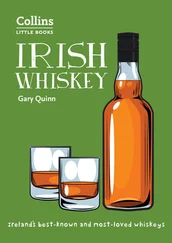“Thank you,” he said. “May I have a glass of water?” His voice came out all dry and reedy.
She brought it to him, and when his throat was unparched, he looked around again. The guy behind him was awake. He was working on a tablet and eating from china at the conference table.
The guy raised his head from his tablet. “Lamb?” he said. He held up a meat-laden fork.
Mark extracted himself from his seat, took his water, and walked aft, jingling the ice cubes in his heavy glass. He put his game face on.
“You with Bluebird?” said the guy.
“I work for Straw.”
“Sure. Yeah. So do I, I guess,” said the guy. Then: “I’m Seamus Cole.” He put his fork down and held out his hand. Mark took it as he noticed the guy’s earplugs on his plate, squidged like tiny wax-smeared penises beside a half-eaten bread roll. This guy did not know he was Mark Deveraux. Is there a polite way to inform someone that he should be aware of you? Surely Bill Clinton and Sean Connery never found themselves in this situation.
“I’m the executive engineer and information architect of New Alexandria,” said Cole. “We’re going to launch my new serve-whales tomorrow. I thought I should be on board for that.” He took a big slug of viscous brown fluid from a snifter.
“Mark Deveraux,” said Mark.
“No shit? You’re the guru guy. I thought you were Bluebird.”
Bluebird? thought Mark. The security contractor? What the fuck?
“I’m just one of Straw’s advisers, really,” said Mark modestly.
“Sure. Like Kissinger was just an adviser.”
Mark couldn’t tell what Cole meant by that. Perhaps being compared to Kissinger was a compliment. Plus, Mark couldn’t figure out how to ask what a serve-whale was without betraying his own cluelessness, so he stood.
“I just have to put my eyes to this thing I’m writing,” he said.
“Sure,” said Cole.
Mark asked the attendant — super-politely, to distinguish himself from Cole — whether he might use the aft cabin to get some rest. She said of course but wouldn’t he like anything to eat? He asked her name and she said Monica and he said, “No, thank you, Monica, but could I please see the galley?” And she showed him the galley. It was all little metal trays and tools that slotted or secured into the wall, like a much cooler version of the kitchenette in the VW van his mom had borrowed from some hippie friends one summer when she and Mark drove to Texas to see about a man. The man turned out to be a disappointment, but the trip was a hoot.
The aft cabin was a bedroom, truly, lit with tiny little spots ensconced in burled walnut. Monica showed him where the buttons to work everything were. Then Mark stripped to his underwear and lay down between real sheets. The pillow wasn’t quite right; it was too springy. So he looked out the little window into a cloudscape like a Maxfield Parrish painting, and soon he slept.
In Hong Kong, Mark and Seamus deplaned and were met at the bottom step by Patel, who was all business. He swept them into another white sedan and then sat up front, beside the silent driver. Their bags were transferred from plane to car.
“You will have another forty-five minutes of travel time,” said Patel. “There is some hurry. There is weather coming in, and the helicopter has its tolerances. Mr. Deveraux, Mr. Straw expects you for dinner.”
Dinner, thought Mark, a word now drained of meaning by jet travel. Dinner could mean anything.
They drove for fifteen minutes, at a decent clip, through two security barriers, and then they stopped at a third. Patel got out and conducted some business in the office beside the barrier. Cole didn’t look good. His face was puffy and he held his hands as if they’d just been given to him. His eyes were glazed. But then he seemed to surface from his daze and become suddenly aware of himself. He focused on Mark.
“You sleep okay?” he asked. There was maybe resentment in his voice.
It was the first time Mark had ever been on a helicopter. The inside was like a very nice van. Two three-man bench seats, but facing each other, and upholstered for potentates. A sort of a coffee table in the middle. More walnut. Walnut trees must live in fear of private aviation. Cole had put Dramamine patches behind both ears and kept his eyes fixed on some point outside the helicopter. Patel was immediately into a legal pad with an expensive pen.
Mark tried to channel his helicopter excitement. The sleep on the jet had done him good, but now he was too keyed up, and no one was going to offer him a drink here. He would pay attention only to the flight, to the sea out the window, to his body in the seat. All the worrying he could expend on the job/money/debt issues or the addiction question or the lack of book progress or what he might be heading into on this yacht — he would not expend it. He would ask his brain, politely but firmly, to refrain from the distressing thoughts and attend only to the clouds and the incredible fact that he was choppering through the sky toward a megayacht.
It worked, mostly. In fact, riding in a helicopter was much more exciting, ergono-aeronautically, than riding in a plane. As they lifted off, Mark felt his body describing a ridiculous straight-up-in-the-air line. He thought of T.C., the chopper pilot on Magnum, P.I., a show that Mark had watched religiously. Was it Thursday night? TV had been so important to him, stoking his little head with stupid fantasies. Now he pretended T.C. was piloting him.
But he couldn’t keep the aggressor thoughts at bay: there was something wrong with his heart; the path he was on was not a good one; his mother was not proud of him; his luck would turn again; he would die alone and unloved.
He kept returning to the scene out the window. Helicopters let you see more than planes did. No plate-size portholes, but broad rectangular windows. They were flying below the clouds, over a scudding sea without indications of scale save for little white paisleys on the blue-green that could have been whitecaps or mile-long reefs.
He checked again on his co-passengers. Cole was looking pretty wretched. He was taking shallow sips of air. People really do get a green cast when they’re motion-sick. Patel was making notes in the margin of some widely spaced document — or pretending to, anyway, a trick Mark knew well. It began to rain and the chopper ducked lower. Mark could see the white combs breaking on the gray sea.
When they flew lower, he could tell that they were really eating up the distance. Then their forward motion ceased. They were above some tanker-type ship. Mark scanned his section of horizon for a sign of Sine Wave but could see none. Were they stopping to refuel?
Landing a helicopter on a ship did seem to be rather tricky. The craft hovered just above the deck for what felt like too long and then dropped the last bit suddenly. Cole’s eyes fluttered at that final jolt, and then his face filled with the obvious relief that he had not puked. Someone outside the helicopter scuttled around its skids, and someone else opened the door from the outside.
This is Sine Wave ? wondered Mark as he followed Patel out of the helicopter and set foot on the stamped metal of the vast foredeck of what appeared to be a freighter. Some distance away — like, two or three blocks away, Mark judged it — the flat face of the ship’s superstructure rose, the windows made to sparkle and bling by the setting sun before them. Cole followed Mark, and the three men walked toward the office-building-size pilothouse. It was a fair walk too; no little white car to take them.
Where were the raked decks and sunny lounges? Where the gleaming brightwork and snapping pennants? The teak and walnut? This was a serious fucking ship, all rivets and cranes and cabling, heavy portals secured with massive mechanical locks, NO SMOKING stenciled hugely onto many surfaces. Mark saw someone emerge from a bulkhead hatch on the pilothouse. It was a crew member, but not a hottie in crisp whites. He was a South Asian in a blue jumpsuit, wearing a pistol on his thigh. He held the door open for them, looking down as he did so.
Читать дальше












